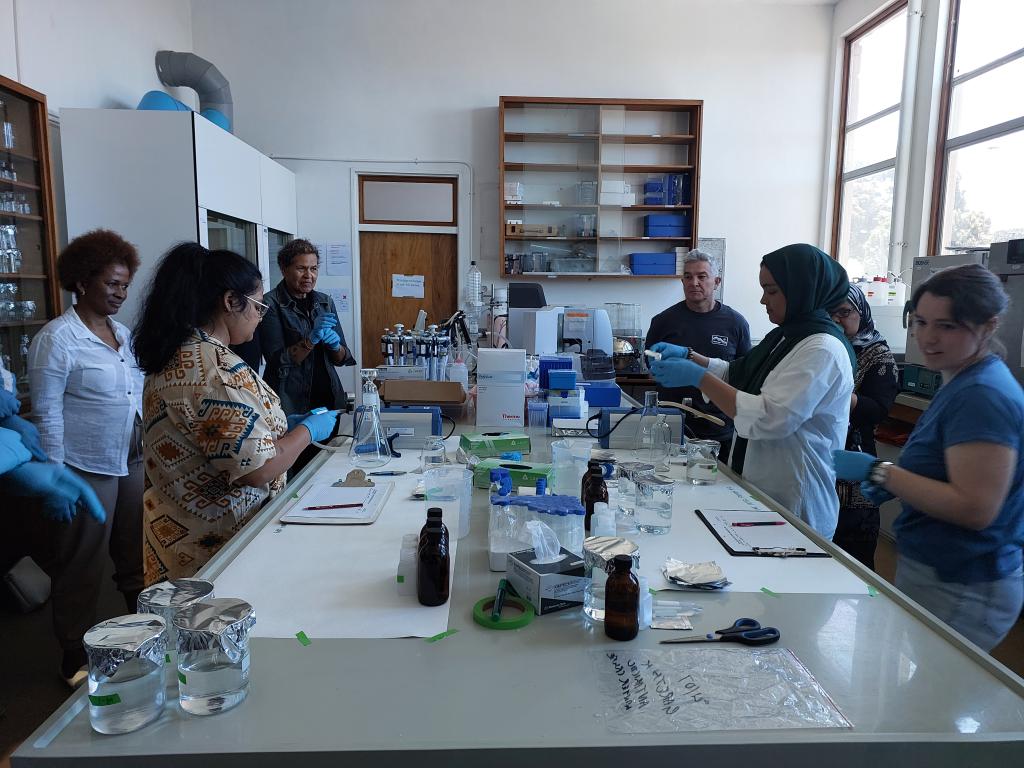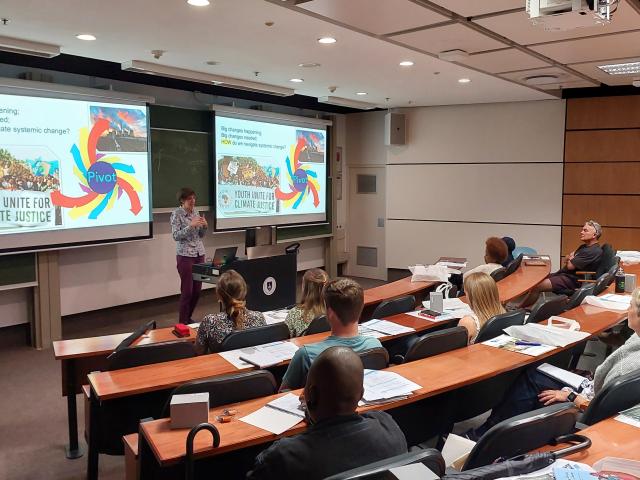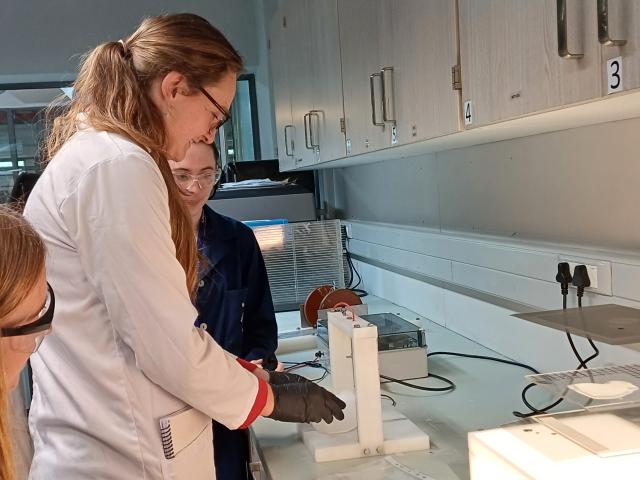ACDI hosts climate change focused workshop for local teachers

Image by Leila Nefdt
The African Climate and Development Initiative (ACDI) recently partnered with the Marine and Antarctic Research for Innovation and Sustainability (MARiS) to host an interactive workshop entitled “How can we survive the century?”, kindly funded through the SAF-ADAPT program. The workshop invited Geography and Natural Sciences teachers, who teach grades 7-9, from across Cape Town to engage with the latest knowledge on climate change.
The workshop attracted approximately 25 teachers from predominantly government (DBE) schools, but with a few teachers who teach in independent schools, and one school specialised in teaching hearing impaired students.
“Since climate change is mostly not a core focus area of the CAPS school curriculum, many learners in South Africa grow up with limited knowledge and understanding of the topic. In addition, the school textbooks are often out of date and expensive to replace, and therefore cannot keep up with the latest information on climate change. This means that teachers often find climate change hard to include in their lessons, despite its importance,” explains Debbie Sparks, course facilitator. “We identified the need for a course that provided teachers with both information and resources that would help them in their classroom environments.”
What was on offer?
The course focused on sharing expertise to equip teachers with the latest knowledge on climate change (and relevant material from the recent IPCC AR6 report), an understanding of climate change mitigation and adaptation, and included a Q&A session. The teachers were also treated to presentations from MARiS where they learnt about Antarctic sea ice and were able to view samples in a laboratory environment. The focus was on providing information, relevant tools and resources for classroom use.
“We saw the benefit in assisting teachers to present and discuss climate change in creative ways to enable them to help their learners understand that they can make a difference in the way they live their lives,” says Debbie Sparks.

Feedback from the teachers
Overall, the workshop was well received with overwhelmingly positive feedback from the teachers who attended.
One attendee wrote, “I enjoyed being able to connect with other teachers who teach the same topic and are interested in the same things. I loved hearing updated information about climate change and also receiving good news about climate change. Getting information and teaching material was also fantastic. I am actually excited to teach about this section. Thank you!”
Another teacher wrote, “In natural science [textbooks], climate change is not discussed deeply. That is why I attend[ed] the course to gain more knowledge about climate change and see how I [can] integrate it in my teaching.”

Going forward
The workshop and subsequent feedback highlighted the growing need to educate and engage with teachers on the challenges and solutions surrounding climate change at a national level.
When asked how else climate change researchers can support teachers to ensure that climate change is better reflected in the classroom environment, one workshop attendee wrote, “Ultimately it will have to be a national syllabus change. Possible folder/list of online resources to print and use in the classroom.”
Ultimately the attendees highlighted that to best way forward is for researchers to help facilitate more of “these workshops”.